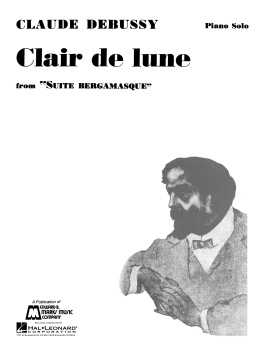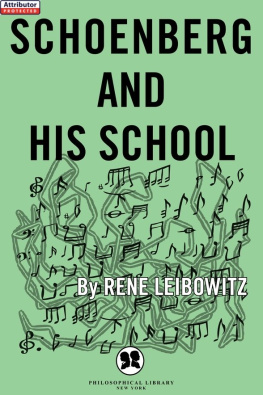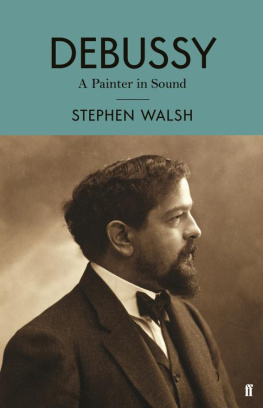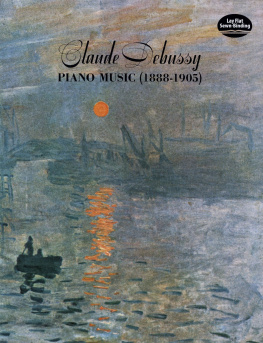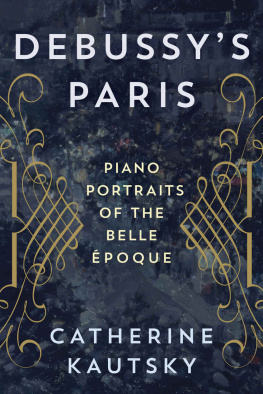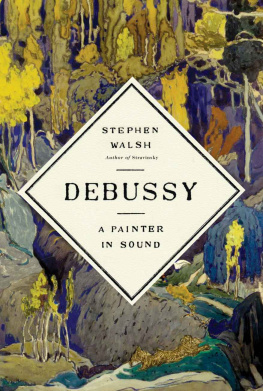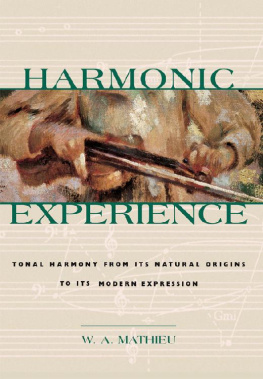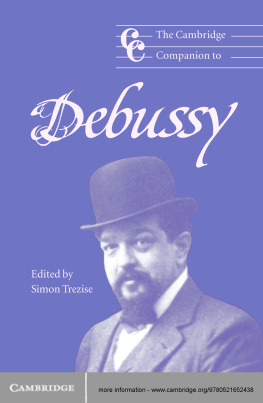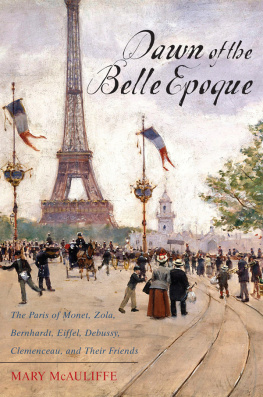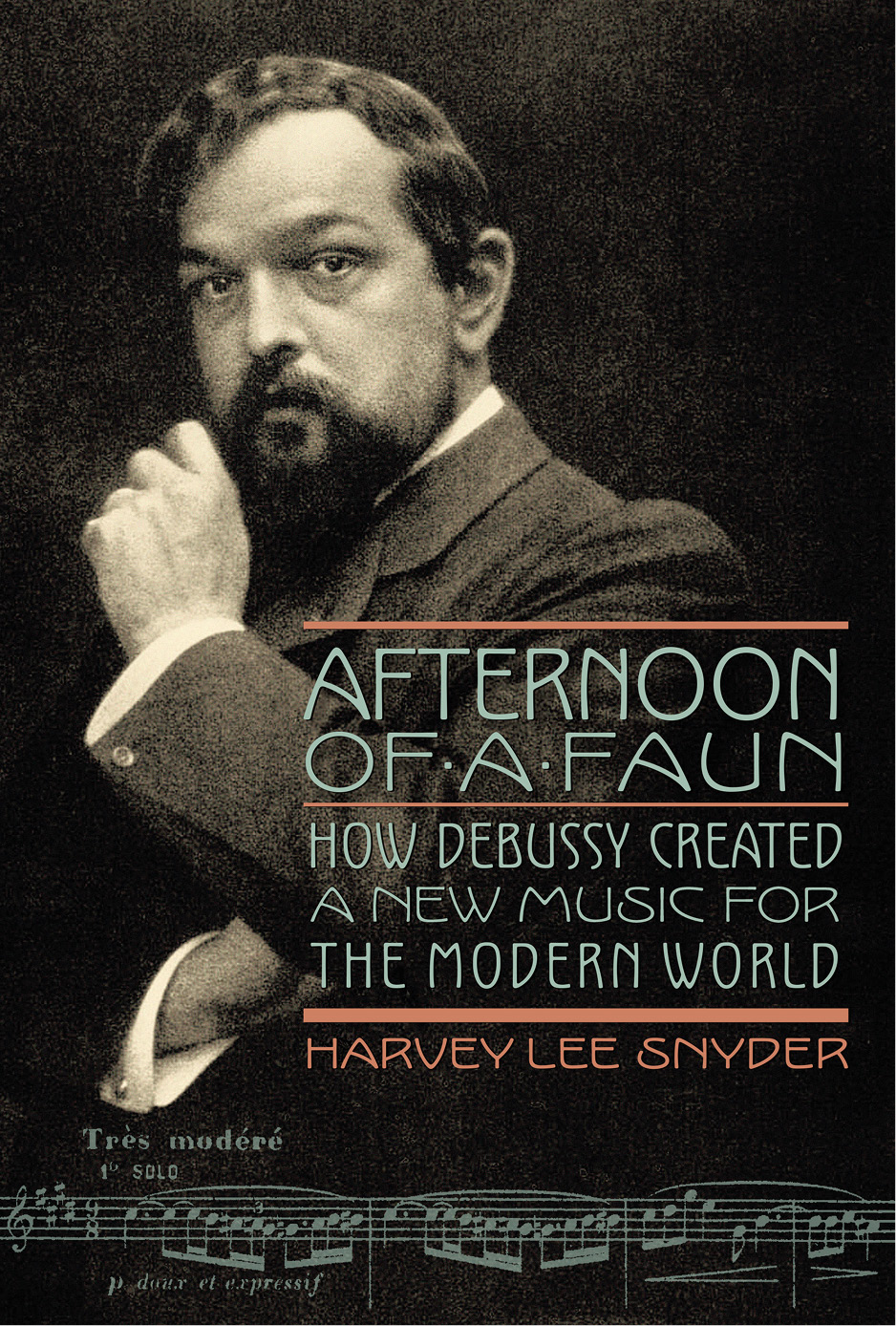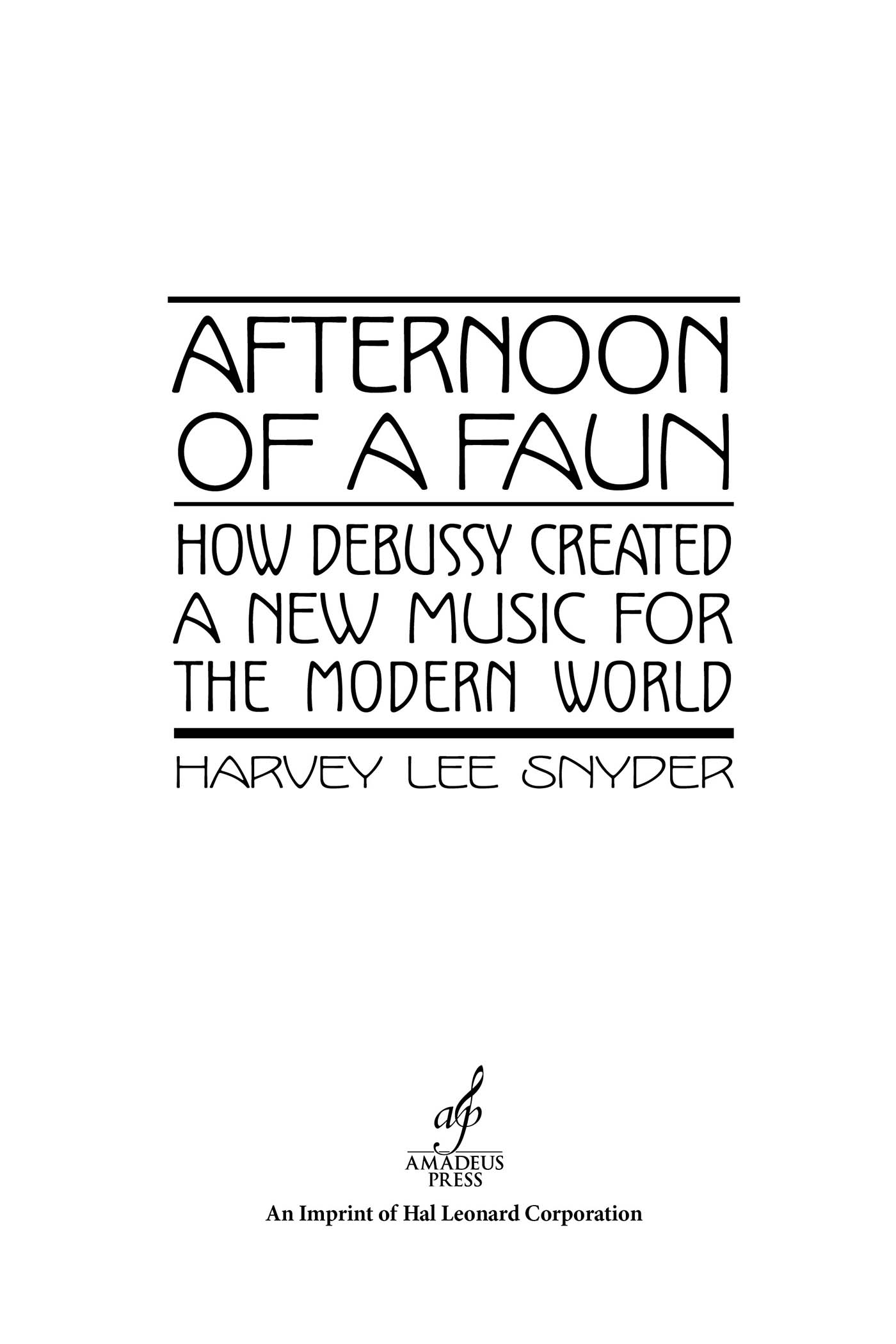Copyright 2015 by Harvey Lee Snyder
All rights reserved. No part of this book may be reproduced in any form, without written permission, except by a newspaper or magazine reviewer who wishes to quote brief passages in connection with a review.
Published in 2015 by Amadeus Press
An Imprint of Hal Leonard Corporation
7777 West Bluemound Road
Milwaukee, WI 53213
Trade Book Division Editorial Offices
33 Plymouth St., Montclair, NJ 07042
Due to limitations of space, acknowledgments of permission to quote from previously published materials are found , which constitutes an extension of this copyright page.
Printed in the United States of America
Book design by Lynn Bergesen, UB Communications
Library of Congress Cataloging-in-Publication Data
Snyder, Harvey Lee.
Afternoon of a faun : how Debussy created a new music for the modern world / Harvey Lee Snyder.
pages cm
Includes bibliographical references and index.
ISBN 978-1-57467-449-1
1. Debussy, Claude, 1862-1918. 2. ComposersFranceBiography. I. Title.
ML410.D28S68 2015
780.92dc23
[B]
2015027704
www.amadeuspress.com
To Carol
and to the memory of Claude Debussy
and to the good people of the twenty-first century who still read books
It is in Music, perhaps, that the soul most nearly attains that great end for which, when inspired by the poetic sentiment, it strugglesthe creation of supernal beauty. It may be, indeed, that here this sublime end is, now and again, attained in fact. We are often made to feel, with a shivering delight, that from an earthly harp are stricken notes which cannot have been unfamiliar to the angels.
Edgar Allan Poe, The Poetic Principle
CONTENTS
PRELUDE
DECEMBER 22, 1894
Always collect the stones that are thrown at you. They may help to build your monument.
Attributed to Hector Berlioz
The first thing you notice is his massive headthe prominent forehead and the bulge above each eyebrow, as if his enormous intellect were about to burst through the cranium. The brow juts forward, the way Jupiters does in those drawings of gods in childrens books. Scattered about the head are heavy-lidded eyes, large ears, the nose a bit too small for the monumental skull behind it. With his curly black hair and beard, average height, and solid build, he looks more like a bourgeois shopkeeper than the ardent, impoverished artiste that he is.
On this important evening, there are few empty seats at the Salle dHarcourt. Some of his former Conservatory companions are here, and friends from the citys dense population of writers and artists. Some influential critics, too. His new Prlude LAprs-midi dun faune will be heard for the first time, and its certain that many in the hall know the steamy Mallarm poem that inspired it. The music will be judged harshly if it doesnt measure up. But can this composer, any composer, capture the mythic symbolism at the heart of the poem? Can music possibly simulate the opulent language, or evoke the languor, the torrid atmosphere of a sylvan afternoon, or portray the erotic ambitions of the faun?
Mallarm will be in the audience. What will he think of it?
Backstage, amidst a flock of agitated musicians, Debussy greets the conductor, Gustave Doret, with a self-conscious smile that betrays his anxiety. Like all of Debussys friends, Doret knows how thirsty for recognition the composer is. At twenty-one Claude won Frances highest honor for young composers: the Prix de Rome. In the ten years since, hes written dozens of songs and piano pieces that have been heard in Paris but nowhere else in the world. A year ago the first performance of his String Quartet left some musicians aghast because it departed arrogantly from the Beethoven model. Nevertheless, it drew a few accolades from the critics, who more often condemn his music as if he had brought shame on the French republic. But this work, this Faune , is so very different.


